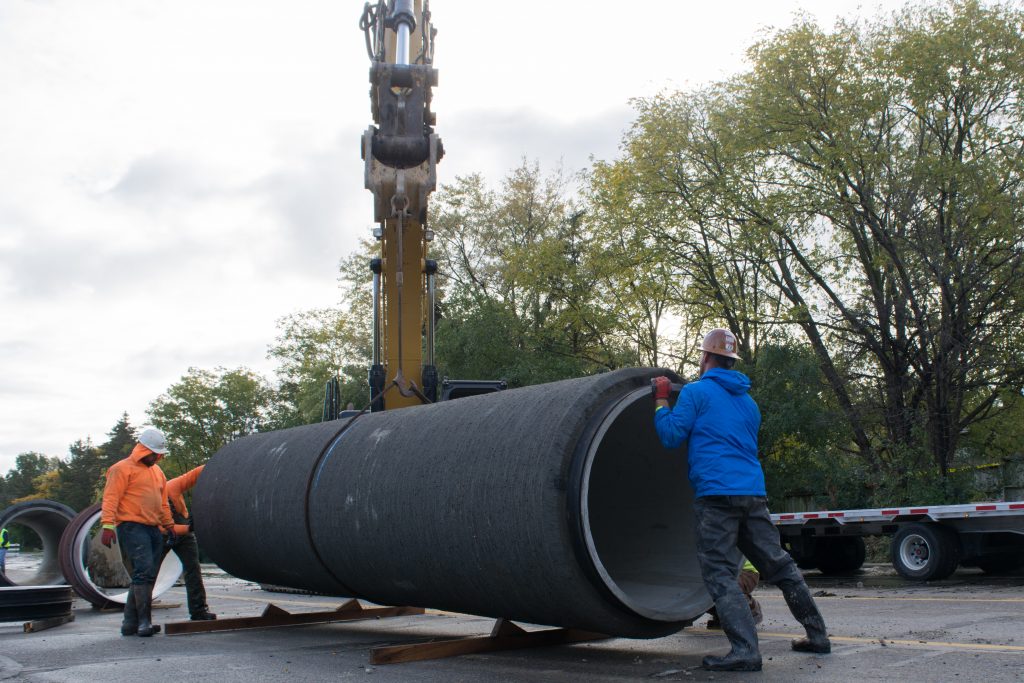Upgrades to Wastewater, Sewer Systems Cut from Bipartisan Infrastructure Deal
Washington Post reporter Libby Casey says the follow-up reconciliation bill will likely cover things like health care and climate change.

After severe storms this past weekend that submerged many freeways in water, it has become very apparent that Detroit needs updated infrastructure, including highways, wastewater and sewage systems.
President Joe Biden made it clear during his presidential campaign that addressing infrastructure woes in the United States would be a top priority when he was in the White House.
“The Biden administration had wanted to get money in there for updating drinking water systems, wastewater and sewage systems … It’s on the cutting-room floor. It didn’t make it in.” –Libby Casey, The Washington Post
This last week, Biden, along with many Senate Democrats and Republicans, announced a rare bipartisan $1.2 trillion infrastructure deal, which is less than Biden’s original $3 trillion proposal. This bill also delivers on another Biden campaign promise: bipartisan compromise. But it doesn’t go as far as Biden wanted to upgrade stormwater and wastewater systems.
Listen: Libby Casey discusses the status of the bipartisan infrastructure deal.
Guest
Libby Casey is a reporter and anchor covering politics and accountability for The Washington Post. According to Casey, despite being less than half of what Biden wanted, it is still a significant deal.
“There are things in this bill that Democrats and Republicans all say, ‘This has to happen to make this country sort of functional and prosperous,’” Casey says. The infrastructure addressed includes money to help with roads, bridges, public transit, passengers and freight rails, water infrastructure as well as money to update power lines, and broadband. Casey says “[W]hat you’ll hear from the White House is no one gets everything they want and that’s the nature of a negotiation. We’re making that down payment, we’re getting things rolling.”
Casey says although Biden and Democrats are not getting everything they want, the follow-up reconciliation bill, because of its filibuster-proof nature, will likely address other spending many Democrats wanted in the first bill. “Biden is now saying we can do this on two separate tracks,” Casey says. “We can do the other budget bill that can include things like childcare, eldercare, climate change.”
Web post written by Dan Netter
Trusted, accurate, up-to-date
WDET is here to keep you informed on essential information, news and resources related to COVID-19.
This is a stressful, insecure time for many. So it’s more important than ever for you, our listeners and readers, who are able to donate to keep supporting WDET’s mission. Please make a gift today.
